Co-parenting can be tricky at the best of times.
But while some challenges are expected, this Redditor found herself facing a demand she didn’t see coming. Her ex-husband’s new wife told her she should homeschool her kids—just like she does with her own. The problem? Neither the children nor their mother wanted that.
Now, the mom’s firm “no” has sparked a clash between the families. Read on to see how it’s unfolding.
RELATED:The woman refused when her ex-husband’s new wife insisted she homeschool her kids

Now, her firm stance is stirring up tension
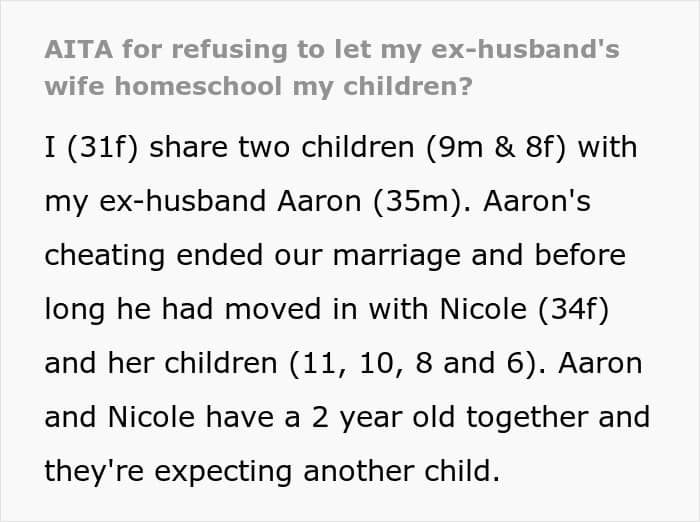



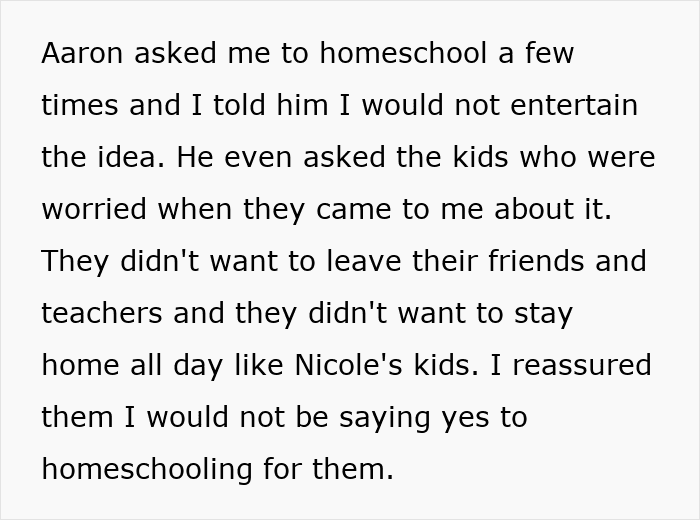






Only 15% of separated parents say they co-parent without issues

Parenting is no small feat—and splitting up doesn’t make it any easier.
According to research by the UK Department for Work and Pensions, only 15% of separated parents say they manage to co-parent without any hiccups.
For many, the sticking point is clashing parenting styles. About a third of co-parents face this challenge, turning everyday decisions into battlegrounds when each believes they know what’s best for their child.
It’s a tough situation, but not a hopeless one. Divorce service Amicable shares practical ways to set boundaries and keep co-parenting from turning into a constant tug-of-war. Here’s what they suggest:
1. Communicate respectfully
Keep conversations focused on your child’s needs, not past conflicts or personal frustrations. Using neutral, collaborative language,like “How can we best support [child’s name]?”—can help you work together without unnecessary tension.
2. Avoid discussing adult issues with your children
Kids shouldn’t feel responsible for their parents’ conflicts or decisions. Sharing details about money, disagreements, or parenting frustrations can leave children anxious or feeling torn between parents. Keep conversations with your kids simple and reassuring, focusing on their security and wellbeing.
3. Don’t speak negatively about the other parent
It can be tempting to vent when emotions run high, but speaking badly about your co-parent in front of your child can cause confusion and guilt. It can also create loyalty conflicts, leaving your child feeling pressured to take sides.
4. Keep each other in the loop
Smooth co-parenting requires staying organized and communicating about your child’s needs, schedules, and any changes to plans. Using a shared calendar or co-parenting app can help keep everything on track and avoid unnecessary stress.
5. Don’t be afraid to ask for help
If disagreements feel impossible to resolve, seeking outside support can help. Mediation or counseling offers a neutral space to work through issues while prioritizing your child’s best interests.
Co-parenting isn’t easy, but it doesn’t mean it can’t work. With clear boundaries, respectful communication, and a willingness to seek help when needed, it’s possible to create a stable, supportive environment for your child, even after a separation.
Many readers showed their support for the woman
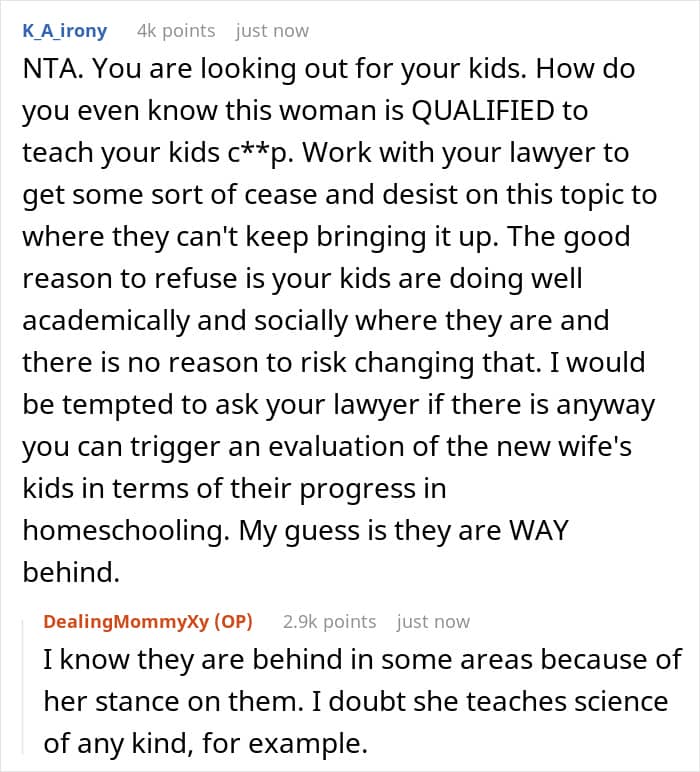






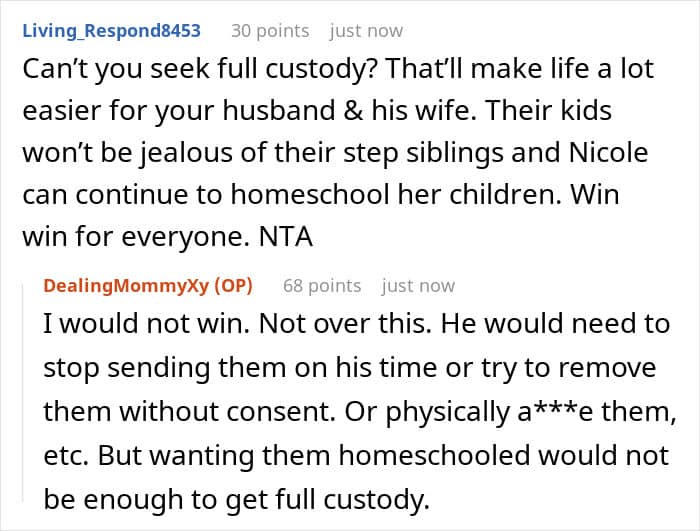

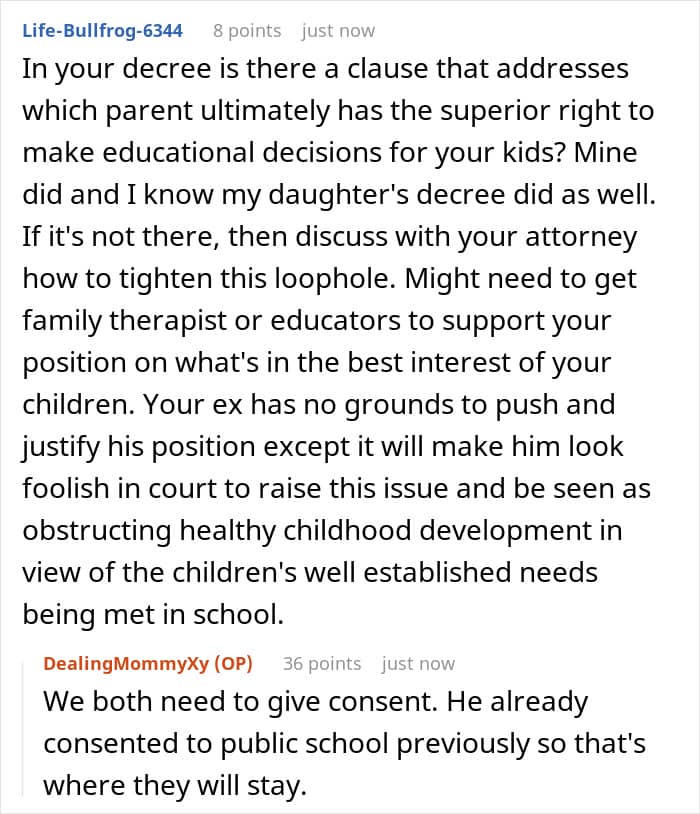


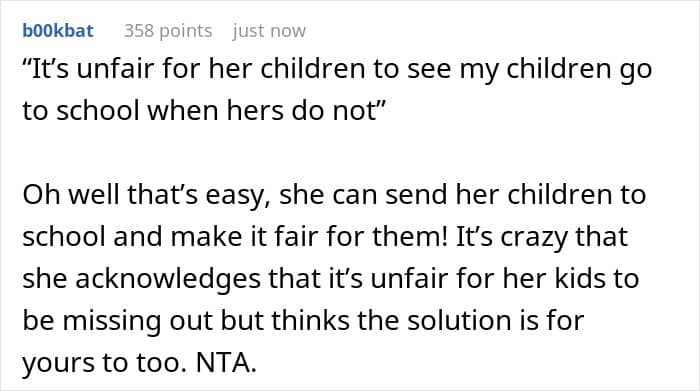



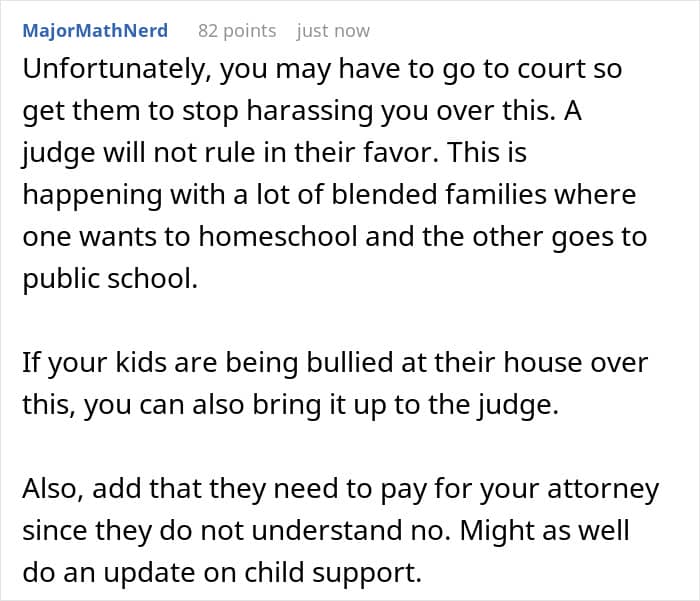

Some, however, felt she was in the wrong for how she handled the issue

